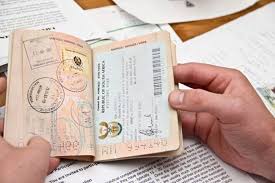PRESIDENT Emmerson Mnangagwa officially opened the First Session of the 10th Parliament of Zimbabwe on Tuesday urging legislators to complete all outstanding bills amongst them the controversial Private Voluntary Organisation (PVO) Bill.
Civic society groups have condemned the bill saying it undermines freedoms of expression and association and gives the government unjustifiable control over their operations.
The bill allows the state to interfere with civil society organisations’ governance and activities
Penalties for breaching provisions of the Bill range from heavy fines to imprisonment.
“I challenge you to accelerate the completion of the matters outstanding from the legislative agenda of the 9th Parliament. Much work lies ahead.
“Mines and Minerals bill, Medical Services Amendment bill, Insurance bill and the Private Voluntary Organization (PVO) bill which were outstanding from the 9th Parliament must be concluded during the first session of this Parliament,’’ President Mnangagwa said.
Mnangagwa referred the bill back to Parliament during the 9th Parliament for reconsideration and now returns where Zanu PF no longer has the two-thirds majority.
President Mnangagwa said obsolete laws such as the Frederick Clayton Trust Act, The Service of Documents Act, the Circles Estates Leasing Act, and The War Marriages Validation Act should be repealed under the Repeals of Laws General Amendment bill.
New bills that will constitute the business of the first session include The Persons with Disability Bill and the Administration of Estates Amendment Bill.
Another bill, the Legal Practitioners Amendment Bill 2023 seeks to streamline the registration process for foreign legal practitioners.
On the legislative agenda, there will also be the Inheritance and Succession Laws General Amendment Bill 2023 which seeks to align Inheritance and Succession Laws to the constitution and international best practice.
The President also highlighted that the 10th Parliament should review the Water Act, the Zimbabwe National Authority Water Act, and the Plant Breeders Act.
The much-anticipated Climate Change bill seeking to regulate greenhouse gas emissions and facilitate low carbon development technologies should thoroughly be debated towards strengthening appropriate institutions and funding mechanisms.
The Parks and Wildlife Act is being amended whilst a Human-Wildlife Conflict Relief Fund is being set up to offer monetary benefits to victims of human-wildlife conflict in our communities.
He urged Parliament to consider expediting the consideration of the Competition Amendment bill, Economic Empowerment bill, Standards bill, Sugar Production Amendment bill, and Technical Regulations bill.
“Ratification will also be required in respect of the SADC Protocol on Industry and the Inter-African Coffee Agreement.
“Through the electronic transaction Electronic Commerce bill, Parliament will assist in the establishment of a framework promoting fair, accessible, responsible, and sustainable online transactions.
“The Law outstanding Postal and Telecommunications Amendment bill must be concluded,” Mnangagwa.
In terms of housing provision, Parliament is expected to consider the alignment of the Housing Standards Control Act and the Housing Building Act.
He also ordered the Public Service minister to bring the National Productivity Institute bill. Pensions and Amendment bill, Occupational Safety and Amendment bill as well as the Human Resources Practitioners bill for consideration by the house.
The National Youth Bill is also being worked on for consideration to facilitate the mainstreaming of the youth in socio-political and economic spaces as well as the sustenance of vocational training centers as hubs.
The National Heroes Act will be amended to redefine categories of heroes, namely national heroes, liberation war heroes, and liberation heroes.
Amendment to the War Victims Compensation Act will now include recommendations from the Chidyausiku Commission of Inquiry Report.
Source NewZimbabwe










